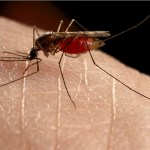dengue
Mosquitoes. That's right, mosquitoes. As creepy little transmitters of diseases such as the current Zika virus epidemic (linked with causing the birth defect microencephaly), West Nile virus, malaria, chikungunya, and dengue fever, mosquitoes kill over 1 million people every year according to the World Health Organization.
This fascinating video from PBS shows how they suck your blood:
I am using insect repellent this summer after watching that video!
A few of the recent pieces I've liked:
Brian Beutler in Salon: The $200K lesson I learned from getting shot
Sarah Kliff, Sandhya Somashekhar, Lena H. Sun and Karen Tumulty in the Washington Post: How eight lives would be affected by the health law
Sendhil Mullainathan in the New York Times: The Mental Strain of Making Do With Less
Patricia Sagastume at Al Jazeera America: Dengue fever presence in Florida at a 'pretty serious level'
Alan Durning at DC Streetsblog: Apartment Blockers (about how the costs of underground parking contribute to high rents)
"If you think you're too small to have an impact, try going to bed with a mosquito." -Anita Roddick
There's a lot to enjoy when it's warm and tropical, which it is many places this time of year. The flowers are out, the Sun often shines, and there's no shortage of spectacular music. Have a listen to to West Virginia-based band The Recipe, as they rock out (and give a shout-out to Neil Armstrong's moonwalk) in their great song,
Whiskey Pickle.
But there's an unwelcome visitor that comes along with this kind of weather: the mosquito.
Image credit: public domain image; source unknown.
Some…
by Kim Krisberg
A couple weeks ago on the southern-most tip of the continental United States in Key West, nearly 70 residents gathered at a town hall meeting to talk about mosquitoes. And not just any mosquito. A special, genetically modified mosquito designed to protect people's health.
While the modified mosquito has yet to make the two-mile wide island its home, local mosquito control officials are busy making the case that its intentional release will help safely contain the risk of mosquito-borne dengue fever, which made a startling reappearance in Key West in 2009. The male mosquito is…
At his new digs, PalMD discusses recent news revealing the presence of dengue virus in the Florida Keys--the first appearance in the state in almost 75 years. Dengue is a mosquito-borne virus that can cause serious disease, including a hemorrhagic manifestation, and the current outbreak is pitting public health professionals against the tourism industry in the Keys. It's also brought to public attention the closing of CDC's vector-borne disease branch due to funding difficulties. The intersection of these--viral emergence, politics, and economic interests--has the potential to cause a huge…
Antibodies are normally a good thing. Neutralize viruses and bacterial toxins, tag bacteria for complement so they get blown up, tag invading parasites/worms/ew so your immune cells can kill them, antibodies even make nice cancer therapies.
One of the great things about antibodies is that the cells that make them? They 'remember' what theyve seen before. Thats how vaccines work-- you expose someone to a crappy polio virus, your body figures out how to neutralize it, and if youre exposed to Real Virulent Polio, your body has a cheat-sheet. Your body already has memory B-cells that know how…
This is an updated version of the first post I wrote this year. The scientists in question were looking at ways of recruiting bacteria in the fight against mosquito-borne diseases, such as dengue fever. They've just published new results that expand on their earlier experiments.
Mosquitoes are incredibly successful parasites and cause millions of human deaths every year through the infections they spread. But they are no match for the most successful parasite of all - a bacterium called Wolbachia. It infects around 60% of the world's insect species and it could be our newest recruit in the…
